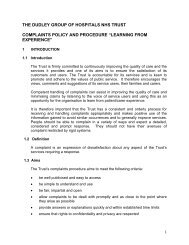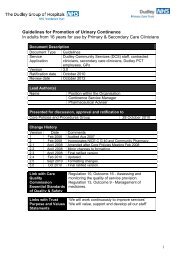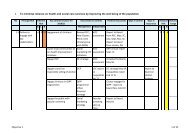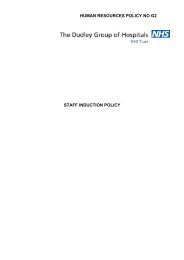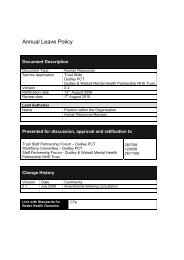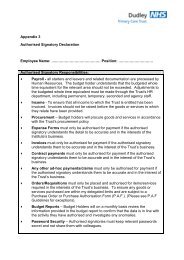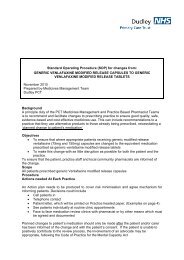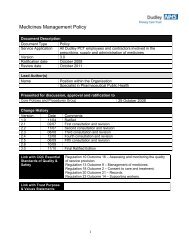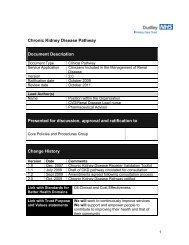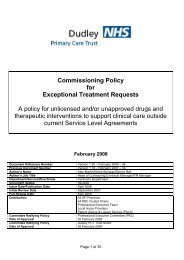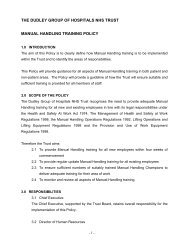Dudley Strategy for Tackling Health Inequalities 2010-15
Dudley Strategy for Tackling Health Inequalities 2010-15
Dudley Strategy for Tackling Health Inequalities 2010-15
- No tags were found...
Create successful ePaper yourself
Turn your PDF publications into a flip-book with our unique Google optimized e-Paper software.
<strong>Tackling</strong> underage/illegal alcohol consumption and encouraging the industryto promote responsible drinkingCombating crime related disorderRaising awareness of, and educating about, safe and sensible drinkingFacilitating identification of at risk individuals and enabling access to alcoholtreatment services which are consistent with national standardsIn addition there is a commitment to implement the high impact changes thatare known to impact on reducing premature mortalityActions to reduce cancer inequalities:The key priorities <strong>for</strong> impacting on cancer inequalities are:Promote healthier lifestylesRaise awareness of cancer signs and symptoms and increase the uptakeof screening programmesReduce cancer waits <strong>for</strong> all patientsEnhance quality and timeliness of in<strong>for</strong>mationProvide financial and psychological supportIMPLEMENTING THE HEALTH INEQUALITIES STRATEGYSuch a broad ranging strategy can only be achieved by a whole range of partnersworking together in a co-ordinated and planned way. The strategy brings togethermany individual action plans that are already being delivered through existing multiagencypartnerships.The progress on reducing health inequalities is currently overseen by the <strong>Health</strong>Improvement Modernisation Management Team (HIMMT) which reports to the<strong>Health</strong> and Wellbeing Board, which in turn reports to <strong>Dudley</strong> Community Partnership.Independent scrutiny of the strategy is done by the <strong>Health</strong> Overview and ScrutinyCommittee. It is likely that these structures will change in the future and a newlystructured <strong>Health</strong> and Wellbeing Board will take responsibility <strong>for</strong> monitoring healthimprovement plans and reducing health inequalities.There are important roles <strong>for</strong> all statutory agencies. Local Authority directorates,including Adult Social Care, Children‟s Services, Environmental <strong>Health</strong> and Housingwill take a lead role in delivery of the strategic aims and the Local Authority willensure the involvement of the new GP Commissioning Cluster in implementing thestrategy when its new public health role becomes functional. The prevention role ofthe Foundation Trust needs to be developed as they become the providers of somecommunity health services and the work on developing the role of the third sectorneeds to be advanced. As part of the Big Society vision the role of Community<strong>Health</strong> Champions, Public <strong>Health</strong> Volunteers and <strong>Health</strong> Trainers will become moreprominent over time.The role <strong>for</strong> Community Engagement and consultation will remain an importantfeature in delivering this strategy and will influence the priorities and future direction16



